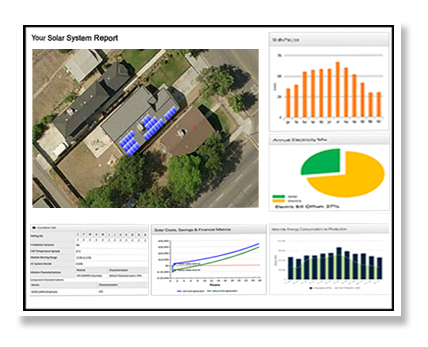
We will never give your details to anyone else without your consent. We will only use your email address to send you the newsletters you have requested. News from Dezeen Events Guide, a listings guide covering the leading design-related events taking place around the world. News about our Dezeen Awards programme, including entry deadlines and announcements. Dezeen Jobsĭaily updates on the latest design and architecture vacancies advertised on Dezeen Jobs.

Dezeen DailyĪ daily newsletter containing the latest stories from Dezeen.
#Photovoltaic system designer jobs plus
Plus occasional updates on Dezeen’s services and breaking news. Sent every Tuesday and containing a selection of the most important news highlights. Sent every Thursday and featuring a selection of the best reader comments and most talked-about stories.

Our most popular newsletter, formerly known as Dezeen Weekly. This article is part of Dezeen's Solar Revolution series, which explores the varied and exciting possible uses of solar energy and how humans can fully harness the incredible power of the sun. "We can build manufacturing capacity in a few years, but society needs to be convinced of the importance of that." "We cannot afford to wait decades," he continued. "We can solve the problems that we're facing, but we have to make a huge, focused effort to make that happen." He believes a solar revolution is possible, but only if the lifecycle of solar products is urgently rethought at a systemic level. He was awarded a knighthood in 2015 for his achievements in the field. Sinke has spent decades researching the field of photovoltaic solar energy and developing solutions. "If we want to build an industry sector producing solar modules in a sustainable way, we need the whole value chain, from raw materials up to the complete systems, to work in a circular manner," Sinke said. One way of achieving this shift, he suggests, is to find a way to replace the silver components in photovoltaic panels – which help to optimise energy generation – with aluminium.Īlthough a large amount of energy is required to manufacture aluminium, it is the easiest metal to recycle.

Read: "Now is the time to design a solar future" Sinke believes a switch to a circular economy – which would see the components of old solar products recycled at the end of their lifecycle – is necessary for the solar energy sector to grow. "For instance, the high-quality glass that is used for solar modules is not available in the quantities we would need for the sector to rapidly expand immediately," he said. "The climate payback time of a solar module may only be a few years, but if you expand rapidly then that value can still be significant."Īnother issue, according to Sinke, is that many of the other materials required for manufacturing solar products are only available in limited quantities. "It is a process that requires a lot of energy, and if that energy is not renewable then there are carbon emissions associated with that," Sinke explained. The majority of photovoltaic cells are made from silicon – a material that is abundant in the Earth's crust, but which has to be highly processed for this purpose. Wim C Sinke presented his research into solar energy at The Solar Seminar, which took place at Het Nieuwe Instituut in Rotterdam The scientist said that the energy and materials required for manufacturing solar cells is one of the biggest obstacles in the ambition to increase production of solar energy. He spoke to Dezeen following a presentation during The Solar Seminar, a solar-design conference that took place at Het Nieuwe Instituut in Rotterdam on 9 September as part of The Solar Biennale. Until his retirement in May 2022, Sinke was principal scientist at Dutch research organisation TNO and a professor of photovoltaic energy conversion at the University of Amsterdam.


 0 kommentar(er)
0 kommentar(er)
